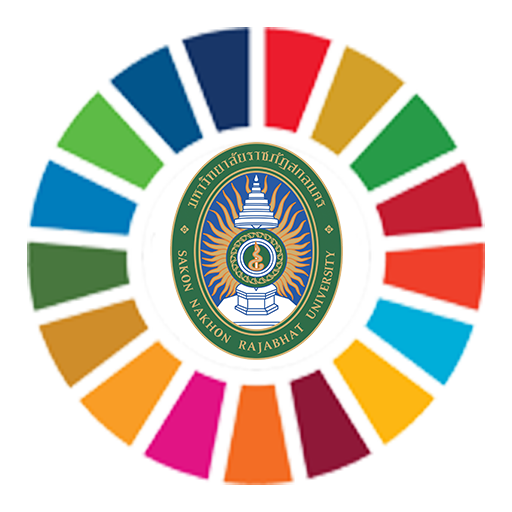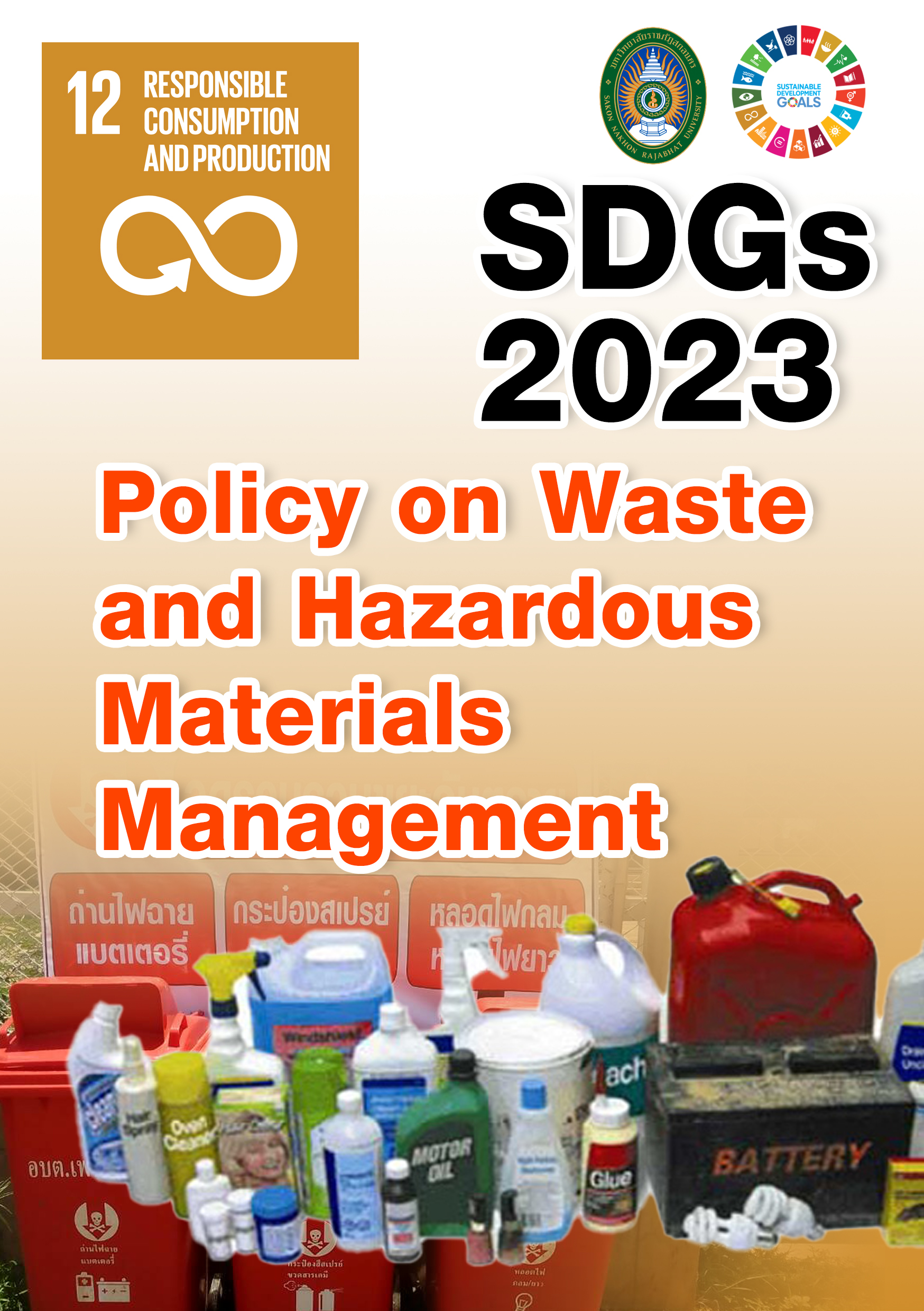This policy aims to establish a framework for managing waste and hazardous materials at Sakon Nakhon Rajabhat University (SNRU) to minimize environmental and health impacts, promote sustainability, and encourage responsible waste management practices within the university community.Policy Statement
1. Policy Statement
Sakon Nakhon Rajabhat University is committed to the safe, responsible, and sustainable management of waste and hazardous materials generated by the university community. This policy outlines guidelines for reducing waste generation, promoting recycling, and ensuring the safe disposal of hazardous materials.
2. Scope
This policy applies to all students, faculty, staff, and contractors at SNRU involved in the generation, handling, and disposal of waste and hazardous materials. It encompasses all campus areas, including academic buildings, laboratories, dormitories, and administrative offices.
3. Guiding Principles
– Waste Minimization: Encourage the reduction of waste at the source by promoting reusable materials, recycling, and the use of sustainable resources.
– Proper Waste Segregation: Waste must be sorted into designated categories (e.g., general waste, recyclables, organic waste, and hazardous waste) to facilitate appropriate disposal and recycling.
– Safe Disposal of Hazardous Materials: All hazardous waste, including chemicals, electronic waste, and laboratory materials, must be collected, stored, and disposed of in a manner that complies with legal standards and minimizes environmental risks.
– Education and Awareness: Foster a culture of responsibility through training and awareness campaigns on safe waste handling and the importance of reducing waste impact on the environment.
4. Waste Management Measures
– Waste Sorting and Recycling Program: Provide color-coded bins across campus to encourage proper waste segregation, making recycling accessible and convenient for all.
– Composting and Organic Waste Management: Implement composting programs for organic waste, reducing the volume sent to landfills and creating a sustainable source of fertilizer for campus landscaping.
– Hazardous Waste Storage and Disposal: Designate specific areas for storing hazardous materials safely before disposal. Ensure that disposal is managed by licensed waste disposal services specializing in hazardous waste.
– Regular Monitoring and Reporting: Conduct regular audits and assessments of waste management practices, including waste generation rates, recycling effectiveness, and hazardous material handling compliance.
5. Awareness and Training
– Offer regular training for faculty, staff, and students on safe handling practices for hazardous materials, waste reduction techniques, and the importance of proper waste management.
– Launch campaigns across campus, including posters, digital signage, and workshops, to encourage waste reduction and recycling. Reinforce a culture of sustainability and responsible consumption.
6. Compliance and Accountability
– Compliance Requirements: All departments must adhere to the established waste management protocols. Non-compliance may lead to disciplinary action and require corrective measures.
– Annual Review: This policy will be reviewed annually by the university’s environmental committee to ensure that waste management practices meet evolving sustainability standards and address areas needing improvement.
Announcement on January 2023




